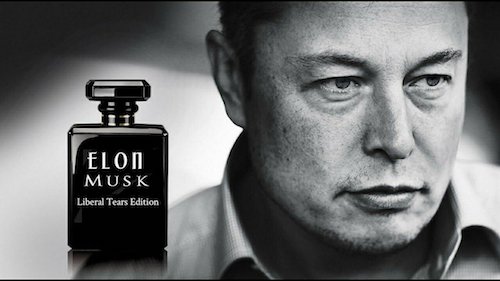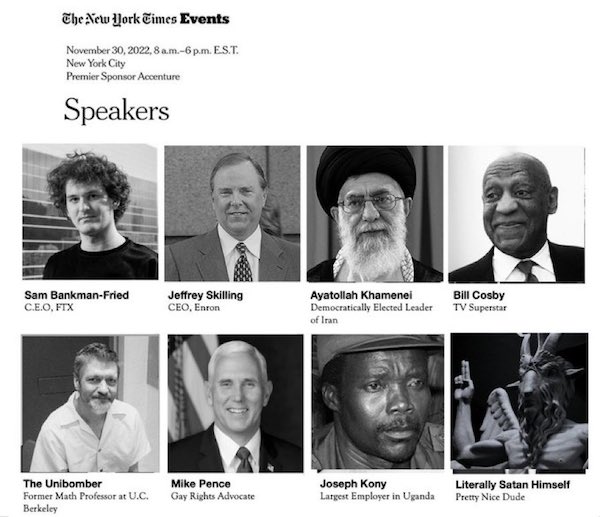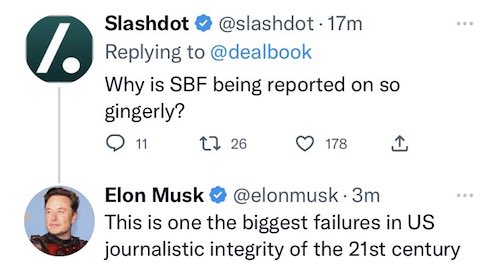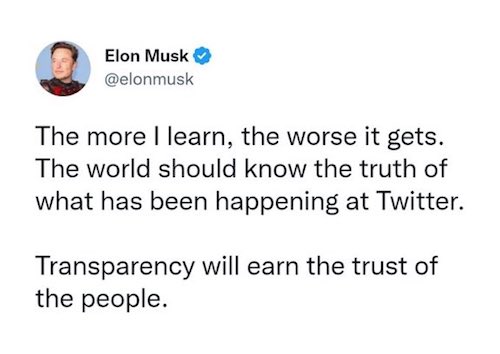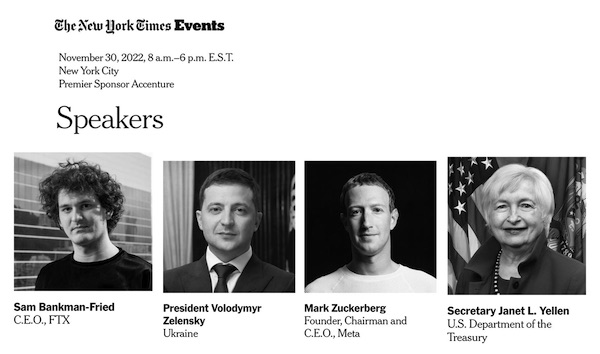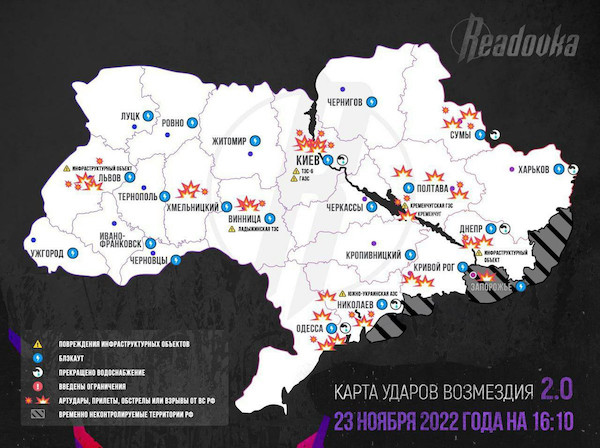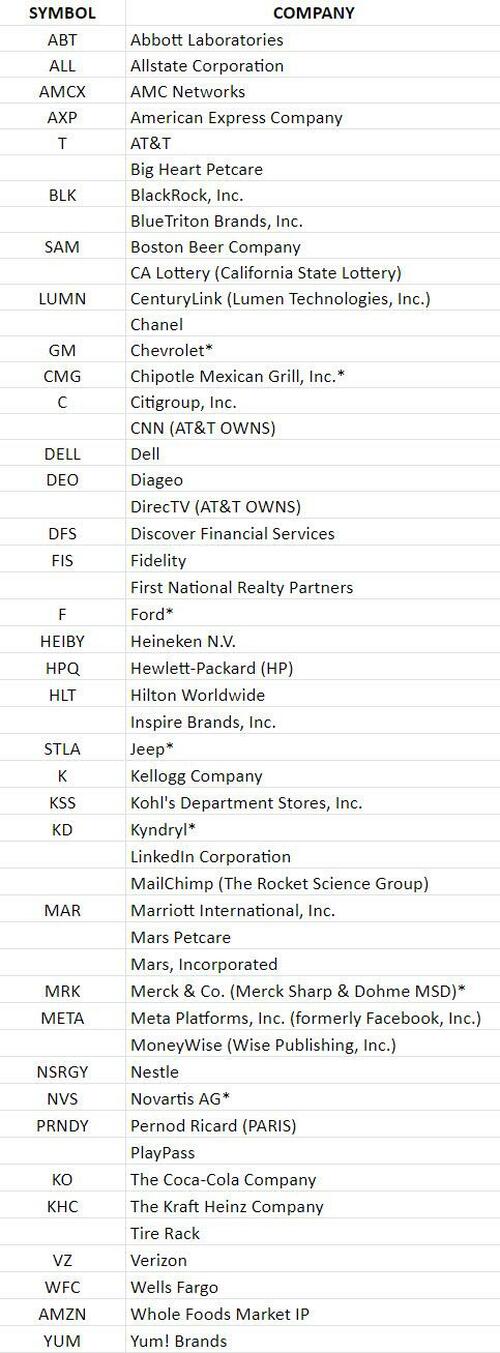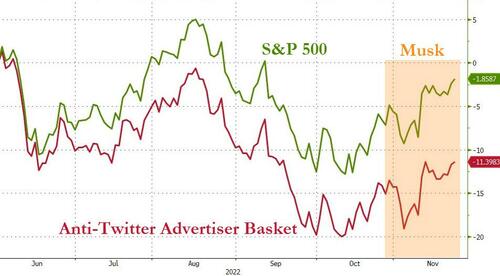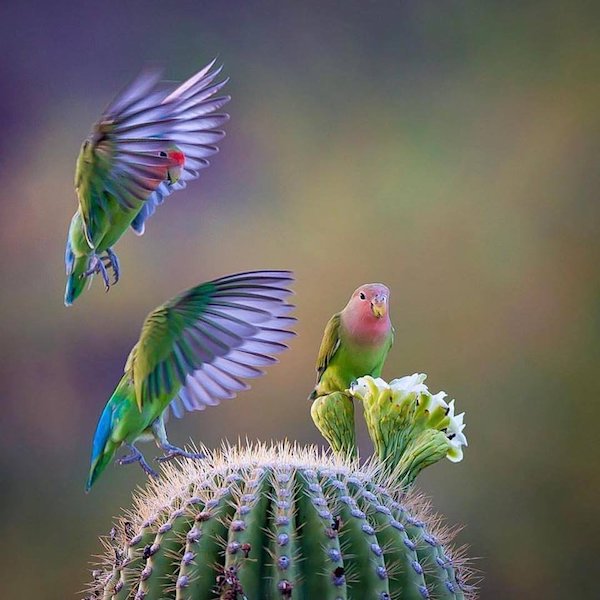
Paul Klee Hammamet with Its Mosque 1914



Sandbags
https://twitter.com/i/status/1664815151256674304




Biden laptop
https://twitter.com/i/status/1664654736711098370
Open source docs prove Hunter Biden’s biolab companies, Metabiota and Black & Veach, were conducting Covid 19 ‘research’ BEFORE the pandemic started pic.twitter.com/hBXADVPmJS
— Truthseeker (@Xx17965797N) June 2, 2023

The Friends of BRICS, a preamble to BRICS+
https://twitter.com/i/status/1664555574518853632
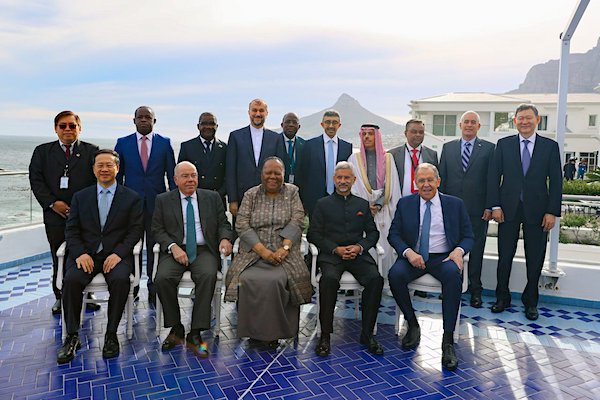
Cape Town
https://twitter.com/i/status/1664657498668781570

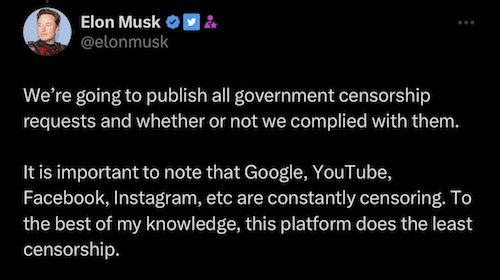

BBee Musk
https://twitter.com/i/status/1664323485794025478




View from India. Zorawar Daulet Singh is an award winning author and strategic affairs expert based in New Delhi.
• NATO’s Big Gamble In Ukraine Has Failed (Zorawar Daulet Singh)
Fifteen months into the biggest land war in Eurasia since the Second World War, the tables have turned. US and NATO began with a confidence that a proxy war was the only way to roll back Russian influence in Europe. It was aimed to cut Russia down to size and snuff out the incipient multipolar order. On paper it was an ingenious, if diabolical, strategy. Ukrainian blood and NATO weapons would be more than a match for Russia. At the very least, western policymakers surmised, Russia would be bogged down in another protracted ‘Afghanistan’ or ‘Vietnam’ for years, while America would swoop across the world as a rejuvenated superpower. The opposite has occurred. On every front in this proxy war – it is more apt to classify the conflict as a limited great power war – US goals have fallen short.
The US’s Weak Hand The international community has stayed scrupulously away from lining up behind the West. Other than its loyal G-6 states in tow, Washington has witnessed a resounding rejection of NATO’s plan to demonise and contain Russia. The Global South has instead discovered an opportunity to advance their own interests and embrace a multipolar world order where weaker states can henceforth bargain for better deals with the major players. India’s foreign policy exemplifies this trend that can today be seen in South America, Africa, Middle East and even in parts of East Asia. Great power geopolitical alignments have also shifted adversely. China – the swing power for the West – has barely budged its position. Since the outbreak of the Ukraine war, Washington has attempted to imagine cleavages between Moscow and Beijing that it could exploit for a new western rapprochement with China. Senior US policymakers, including the President, along with a flurry of European leaders have attempted to court the Xi Jinping regime in an attempt to nudge China away from Russia. But to little avail. The Chinese seem unwilling to jeopardise their partnership with Russia. With their own potential flashpoint right under their nose in Taiwan, Beijing fears a similar fate for itself in the future.
Unanticipated Economic Blowback The real trump card in Western hands has always been the economy: the legacy dominance of the US dollar, control over international supply chains, and the ability to arbitrarily impose collective sanctions and isolate a country. These are unique leverages that no other great power can claim to possess as of today. This is where the US truly felt it had the upper hand. It could not only destabilise Russia, perhaps even fatally, but also rewrite a new chapter on globalisation. Yet shockingly again, and despite dramatically severing European energy and industrial linkages with Russia, the blowback to the West has been more severe than the intended impact on the Russian economy. European economies are reeling from inflation and the spectre of de-industrialisation, fueled by a supply side energy and commodity crisis caused by western sanctions. Industrial giants like Germany have slumped into a recession. Economists can no longer deny just how critical the Russian commodity and energy link as well as market access was for European prosperity and industrial vitality.
How Russia Escaped, India Too But how did Russia escape its own economic strangulation? Very simply, the non-western world did not commit hara-kiri. China and India along with several other developing economies quickly replaced western markets, providing not only a lifeline to Russian exports but also drew unusual growth benefits of their own from discounted crude oil. Flushed with revenues, Moscow has been able to procure industrial components, machinery and consumer goods necessary for its basic economic stability. Trade with China is estimated to touch $200 billion in 2023, emulating a role played by Germany in the past. As a consequence, Russia defied the double-digit recession forecast for it in 2022 by only contracting by 2.1 percent. Even the IMF projects positive GDP growth for the Russian economy in 2023 and 2024.
The War Theatre: Advantage Russia Finally, it is in the war theatre itself where events have unfolded calling into question the entire geopolitical gamble of the West. After the initial phase when Russia received a rude shock about the full extent of NATO’s penetration and the systematic buildup of the Ukrainian armed forces since 2014, Moscow shifted to a strategy of attrition. This meant occupying territory – usually the primary objective of a war – became less important (other than of course the ethnic-Russian dominated Donbass and Crimea) than degrading and destroying the NATO-built force inside Ukraine. Classical war of manoeuvre with large tanks battles in vast open fields or direct assaults on entrenched Ukrainian positions – scenarios that NATO expected and trained the Ukrainian military for and for which it invested in major defence lines around the Donbass – were replaced by gruelling and bloody struggles for strategic cities and gateway towns. Russia has prevailed in all these major urban battles that will help it secure eastern Ukraine. At the same time, Russia has used its offensive firepower to freely strike at military, logistic, high value infrastructure, and command and control targets across Ukraine including in Kyiv. Russia adapted to fight an intelligent and relatively low casualty war of its choosing and not the one NATO had planned to bog it down in.

Blinken seeks many more years of war:
“The United States will help Ukraine build a powerful, modern military, US Secretary of State Anthony Blinken said in a speech in Helsinki. Blinken stressed that Washington will continue to provide Ukraine with military assistance so that the Armed Forces of Ukraine can fight Russian aggression. He said the United States would help Ukraine build “the army of the future.” This, he says, means “a modern air force, air and missile defense, modern tanks and armored vehicles, the ability to produce ammunition, as well as training and support for combat readiness of forces and equipment.”
• Blinken Dismisses Calls for a Ceasefire: Build Up Ukraine’s Military (Antiwar)
The US will focus its efforts on arming Ukraine and not attempting to bring the war to a negotiated settlement, America’s top diplomat said. Secretary of State Antony Blinken laid out a plan to massively expand Kiev’s military before talks begin. In a speech delivered in Finland on Friday, Blinken stated, “The United States – together with our allies and partners – is firmly committed to supporting Ukraine’s defense today, tomorrow, for as long as it takes.” He continued, “We believe the prerequisite for meaningful diplomacy and real peace is a stronger Ukraine, capable of deterring and defending against any future aggression.” Blinken dismissed the idea of even a temporary pause in the fighting. “Some countries will call for a ceasefire. And on the surface, that sounds sensible – attractive, even. After all, who doesn’t want warring parties to lay down their arms? Who doesn’t want the killing to stop?” He said.
“But a ceasefire that simply freezes current lines in place and enables Putin to consolidate control over the territory he’s seized…It would legitimize Russia’s land grab. It would reward the aggressor and punish the victim.” The Secretary of State offered an ambitious vision of Kiev’s future military capabilities. “America and our allies are helping meet Ukraine’s needs on the current battlefield while developing a force that can deter and defend against aggression for years to come.” He added, “That means helping build a Ukrainian military of the future, with long-term funding, a strong air force centered on modern combat aircraft, an integrated air and missile defense network, advanced tanks and armored vehicles, national capacity to produce ammunition, and the training and support to keep forces and equipment combat-ready.”
It is unclear how long it would take to build the deterrence force envisioned by Blinken. American arms stockpiles are dwindling as Washington attempts to transfer Kiev enough military equipment to keep its army fighting. The US additionally has plans to significantly increase arms transfers to Taiwan. Blinken claimed, “Our support for Ukraine hasn’t weakened our capabilities to meet potential threats from China or anywhere else – it’s strengthened them.” In November, the Wall Street Journal reported, “US government and congressional officials fear the conflict in Ukraine is exacerbating a nearly $19 billion backlog of weapons bound for Taiwan, further delaying efforts to arm the island.” Additionally, the White House may not have the support it needs in the Capitol for such a massive military buildup in Ukraine. Blinken asserted that “in America, this support is bipartisan.” However, at the beginning of May, Rep. Michael McCaul (R-TX), chairman of the House Foreign Affairs Committee, said future support for Ukraine would be contingent on success in Kiev’s long-planned counteroffensive.
Since McCaul’s statement, Ukraine has slowly lost more territory to Russian forces, including Bakhmut. Zelensky committed endless resources to the city in a months-long battle despite the advice from his Western backers. The White House is now preparing for the counteroffensive to fail. Washington’s strategy, as laid out by Blinken, calls for arming Ukraine and weakening Russia. “Russia is significantly worse off today than it was before its full-scale invasion of Ukraine – militarily, economically, geopolitically,” he stated, adding, “President Putin has diminished Russian influence on every continent.” However, Gen. Christopher Cavoli, the commander of US European Command, told Congress in April that Moscow’s ground forces are “bigger today” than before Moscow launched its invasion of Ukraine last year.
https://twitter.com/i/status/1664806363204034560

“..even someone like myself with a year-and-a-half experience of military service knows perfectly well… that if I attack, I’ll lose three times more than the one who is on the defense.”
• Ukrainian Counteroffensive Would Turn Into ‘Bloodbath’ – Orban (RT)
Everything must be done to avoid a Ukrainian counteroffensive against Russian forces as it would have devastating consequences for Kiev, Hungarian Prime Minister Viktor Orban has said. During an interview with Kossuth Radio on Friday, Orban stated that “even someone like myself with a year-and-a-half experience of military service knows perfectly well… that if I attack, I’ll lose three times more than the one who is on the defense.” Ukraine likely has a population of “somewhere between 20 to 30 million” at the moment, which is “a fraction” of what Russia has, he said. Russia’s population is over 146 million, according to data from the Federal Statistics Service.
The launch of a major counteroffensive by Kiev in such conditions “would be a bloodbath,” the Hungarian leader warned. “Even in the best-case scenario [for Kiev], no better result could be achieved… on the battlefield, than what could’ve been reached through negotiations even before the conflict,” he said. “We must do everything we can before the launch of a counteroffensive to convince the sides that ceasefire and peace talks are necessary,” Orban insisted. Ukraine has been planning a large-scale counteroffensive against the Russian forces for months, claiming it would allow Kiev to retake all territories lost to Russia, including Crimea.
The operation was expected to start in spring, but had been delayed on numerous occasions as Ukrainian officials complained about bad weather, a lack of ammunition, and the reluctance of the West to supply warplanes. Hungary has taken a balanced approach since the outbreak of the conflict between Moscow and Kiev in February 2022. Budapest has supplied humanitarian aid to Ukraine, but refused to send arms to President Vladimir Zelensky’s government, unlike many fellow EU member states. Hungary has also consistently called for a peaceful settlement to the crisis and criticized the sanctions imposed by Brussels on Moscow, arguing that they have failed to achieve their goal and were hurting the EU more than Russia.

”Had he won, up to 3 million of the 4 million refugees living in Türkiye would be flooding the Hungarian border by the end of the summer..”
• Orban Delighted At Erdogan’s Victory Over ‘Soros’ Man’ (RT)
Hungarian Prime Minister Viktor Orban described the election victory of Turkish President Recep Tayyip Erdogan over challenger Kemal Kilicdaroglu as a “huge relief” in a radio broadcast on Friday. “If Erdogan had not won, Soros’ man would have opened the borders to immigrants,” Orban claimed, referring to Kilicdaroglu as an agent of billionaire currency speculator and funder of liberal causes George Soros. Had he won, up to 3 million of the 4 million refugees living in Türkiye would be flooding the Hungarian border by the end of the summer, Orban presumed. “I didn’t just root for him, I prayed specifically for President Erdogan’s victory,” Orban continued. “It would have been a tragedy if he had not won.”
The prime minister argued that unlike Erdogan, Kilicdaroglu would have been a pro-war leader, potentially disrupting Russian gas supplies to Hungary and Serbia. Hungary receives the vast majority of its natural gas from Russia via the TurkStream pipeline, which carries gas from Russia to Southern Europe through Türkiye. Budapest has repeatedly blocked EU efforts to impose an embargo on Russian gas to punish Moscow for its military operation in Ukraine. Orban stressed the importance of convincing Ukraine and Russia “that a ceasefire is needed and that peace talks are necessary,” lamenting that “the vast majority in the EU is against us, they are at our throats.” He predicted a “bloodbath” if Kiev were to go ahead with its planned counteroffensive, pointing out that the odds were not on the Ukrainians’ side.
Erdogan officially won reelection on Sunday following a runoff vote, entering his third term with support from 52.14% of the electorate, according to Türkiye’s Supreme Election Council. While Kilicdaroglu ran on a globalist platform of restarting EU accession talks, improving relations with the country’s NATO allies, and rolling back many of Erdogan’s domestic reforms, he took a more forceful stance against open borders during the runoff, promising to send refugees back to their home countries. Erdogan consistently portrayed his opponent as hostile to traditional values, pro-terrorist, and pro-LGBT.

“..as long as his government remains in power..”
• Orban Warns Hungary Will Never Fight Russia (RT)
Hungarian PM Viktor Orban has pledged not to “fight” Russia or let the country get dragged into the Ukraine conflict as long as his government remains in power. The prime minister made the remarks on Friday during an interview with local Kossuth Radio. Budapest sees the ongoing hostilities between Moscow and Kiev as a “close” yet “outside threat,” Orban explained. “We are not involved in the war, Hungary is not at war with Russia, and will not be for as long as this government is in place, certainly not,” the PM stated. Orban also slammed belligerent statements repeatedly made by “left-wing politicians” who have claimed their countries were “at war” with Russia already. The PM did not, however, point to any specific examples of such statements.
“When left-wing politicians say that ‘we are at war with Russia,’ while sitting at home in a comfortable armchair, they do not know what they are talking about. They have lost their minds. ‘We are at war with Russia’ is a statement that no sane person can afford since World War II.” Unlike fellow NATO and EU member states, Hungary has taken a neutral stance on the conflict between Russia and Ukraine, which began in February 2022. The country has refused to provide any military aid to Kiev and has even prohibited the flow of arms from third parties to Ukraine through its territory.
The country has also been opposing the EU’s anti-Russian sanctions, particularly those damaging its own vital interests, namely restrictions in the fields of conventional and nuclear energy. Budapest has consistently argued that the restrictions failed to meet their proclaimed goals and were hurting the EU more than Russia. At the same time, Budapest has been providing humanitarian aid to Ukrainian civilians who have been impacted by the crisis. Hungary has also repeatedly called for settling the conflict through a diplomatic solution.

This is a war summit. Nothing to do with peace.
• Zelensky Talks Peace Summit With Scholz (RT)
Ukrainian President Vladimir Zelensky has said his recent meeting with German Chancellor Olaf Scholz included talks on preparing for a “Global Peace Summit.” Earlier this week, media outlets reported that Kiev and its Western backers were planning to convene a global meeting centered on Kiev’s “peace formula,” which has already been rejected by Moscow. According to a statement published by Zelensky’s office, the president met with the German leader on the sidelines of the European Political Community Summit in Moldova’s capital Chisinau on Thursday. He thanked Scholz for “supporting the Ukrainian Peace Formula” and for his “readiness to join its implementation.” The two leaders also “discussed joint preparations for the Global Peace Summit and the involvement of the widest possible range of participants,” the statement noted.
The Ukrainian president urged Berlin to keep military aid flowing to Kiev, specifically air defense systems, citing the “escalation of Russian missile terror against Ukraine.” On Wednesday, the Wall Street Journal reported that French President Emmanuel Macron had offered to host the summit in Paris, with Denmark and Sweden also putting themselves forward as potential hosts. European officials have allegedly extended invitations to Brazil, India, China, and several other non-Western countries, with Russia being conspicuously absent from the list. Published late last year, Ukraine’s peace formula demands that Moscow withdraw its forces from all territories within Ukraine’s borders as established in 1991, including Crimea.
Moreover, the plan envisages Russia paying reparations for damage caused, and handing over officials accused by Ukraine of war crimes, to face international tribunals. Moscow has unequivocally rejected this formula, with Foreign Minister Sergey Lavrov describing its terms as essentially the “capitulation of Russia.” Speaking on Friday, Kremlin spokesperson Dmitry Peskov noted that there are no indications that dialogue with Ukraine will be possible any time soon. He explained that the proposals floated by European nations have so far failed to accommodate Moscow’s security concerns, which are a priority for Russia. Earlier this week, the EU High Representative for Foreign Affairs and Security Policy, Josep Borrell, expressed skepticism over the prospect of Russia engaging in peace talks with Ukraine in the near future.
The diplomat argued that Moscow seems intent on achieving a military victory over its neighbor, and that fighting is likely to continue throughout the summer. Aside from Ukraine’s own peace formula, there have been several plans suggested by other nations. Notably, China released its own 12-point roadmap on the first anniversary of the conflict in late February. While dismissed out of hand by the US, its NATO allies and Ukraine, the plan has been received favorably by several other nations, including Brazil and Russia.

Many more years of war.
• Europe Suffers Sharp Munitions Deficit Due To Military Aid Largesse (TASS)
Europe is experiencing a palpable deficit of ammunition due to its generous military support for the Kiev regime, Italian daily La Repubblica reported on Friday. According to the newspaper, among other items, there is a shortage of shells and explosives for warheads. That said, Kiev cannot launch its much-hyped counteroffensive until it accumulates sufficient supplies. The US has already doubled its production from 200,000 to 400,000 shells a year, while in 2025 it hopes to surpass the one million mark. Meanwhile, in Europe this figure is at the level of just 50,000. According to La Repubblica, financing being provided by Brussels is aimed at changing the current state of affairs but, that said, the goal of churning out one million 155-mm shells “every 12 months appears to be overly ambitious.”
Earlier, EU High Representative for Foreign Affairs and Security Policy Josep Borrell said that the EU plans to deliver another one million munitions to Ukraine in the next 12 months. According to him, 24 EU countries have joined the initiative to expand production of 155-mm artillery shells with 1 billion euros being appropriated for this purpose. He specified that the European Defense Agency, a branch of the EU, had taken the lead on this issue.

“Production at the Sakhalin-1 project in Russia’s Far East jumped by 180%, quarter on quarter.”
• Russian Oil Giant’s Profits Soar Amid Sanctions (RT)
Net profits at Russia’s largest oil producer, Rosneft, jumped by 45.5% in the first quarter of this year compared to the previous three months, hitting 323 billion rubles ($4 billion) due to a rise in output, the company announced this week. Analysts polled by the Interfax had expected the figure to be far smaller, at $2.9 billion. Oil and gas production in the first quarter increased by 0.8% from October to December, exceeding four million barrels per day, Rosneft reported. Production at the Sakhalin-1 project in Russia’s Far East jumped by 180%, quarter on quarter. The company’s CEO Igor Sechin, however, warned that operations would be further impacted by Moscow’s decision to reduce its oil output by 500,000 barrels per day, or about 5%, in order to bolster global oil markets.
“While the cut did not have much influence on the Q1 2023 results, it will have a strong impact on the results of the following quarter,” he warned. Rosneft attributes the rise in profits to increasing energy sales to India and other ‘friendly’ states. India, the world’s third-largest crude importer, ramped up purchases of Russian oil shortly after the start of Moscow’s military operation in Ukraine and the ensuing Western sanctions. New Delhi has repeatedly stressed that energy security is its top priority. It has chosen not to succumb to Western pressure and has continued to stock up on Russian supplies, even after the G7 price cap on Russian oil came into force late last year. Sechin said recently that Moscow and New Delhi had agreed to “substantially increase” the supply of crude oil to India and diversify its grades.

China’s setting up the table. Next round, intentions won’t be enough.
• Moscow, Kiev, EU Seeking Peaceful Solution To Ukraine Crisis – Special Envoy (TASS)
Moscow, Kiev and the European Union vowed to work toward a peaceful solution to the Ukraine crisis, Chinese Special Representative for Eurasian Affairs Li Hui said, commenting on his recent international tour. “The first thing that I felt clearly was that every side involved positively assessed China’s efforts. Everybody’s hoping for a peaceful solution to the [Ukraine] crisis,” Li told a briefing at the China Public Diplomacy Association. According to the Chinese envoy, both Russia and Ukraine, as well as the EU, support the stance of China which is seeking to resolve the conflict through political means. From May 15 to May 26, Li Hui visit Ukraine, Poland, France, Germany, the EU headquarters and Russia. During that tour, he met with Ukrainian President Vladimir Zelensky, and diplomats from the aforementioned nations, including Russian Foreign Minister Sergey Lavrov. His key goal, Li said, was to discuss the Ukraine conflict.

“You ask why Russia took such actions. I will answer you with one phrase, which my Russian colleagues shared with me,” Li said. “They started the operation to protect the lives, property and security of the people of Donbass.”
• China Special Envoy Urges Europe To Ponder Causes Of Ukrainian Conflict (TASS)
The Chinese government’s special representative for Eurasian affairs, Li Hui, suggested on Friday that his European counterparts should ponder why the Ukrainian conflict had developed and why Russia had launched a special military operation in Ukraine. The Chinese envoy was speaking in response to a question from a Western journalist who asked him for clarification. “When I was in Europe, I invited my colleagues from European states to think hard about the root causes of the Ukrainian conflict,” Li said at a news briefing of the China Public Diplomacy Association in Beijing following his international tour. “They can all think hard and draw their own conclusions,” Li said. While explaining the reasons for the special military operation he referred to Russia’s arguments.
“You ask why Russia took such actions. I will answer you with one phrase, which my Russian colleagues shared with me,” Li said. “They started the operation to protect the lives, property and security of the people of Donbass.” As the Chinese diplomat specified, regardless of the causes of the Ukrainian crisis “it is necessary to restore peace as soon as possible through negotiations in a political way.” On May 15-26, Li Hui visited Ukraine, Poland, France, Germany, the EU headquarters and Russia. During this trip, he met with Ukrainian President Vladimir Zelensky and with diplomats from these countries, including Russian Foreign Minister Sergey Lavrov. The task, as Li confirmed, was to discuss the Ukrainian conflict.

“..I left the interrogation with a new appreciation of how deeply ingrained into the intellectual DNA of the official US government the Navalny and Ukrainian narratives have become..”
• Propaganda Perverts Reality In The Minds Of Americans (Scott Ritter)
At the end of April, my daughter Victoria and I departed New York City’s JFK airport, ultimately bound for the Siberian city of Novosibirsk, the first destination of what would be a 26-day, 12-city tour of Russia. While the official purpose of the visit was business (I was promoting my book, Disarmament Race, which has been published in the Russian language by the Komsomolskaya Pravda publishing house), the unofficial – and for me, most important – purpose of the visit was an opportunity to better understand today’s Russia. To do this, I was going to dig deeper into Russian history, get a better grasp of the culture, and, in the process, try to understand the “Russian soul” in as precise a manner as possible.
From my perspective, both objectives were accomplished. I’m inclined to believe that Komsomolskaya Pravda was pleased with the results of a tour that drew positive media coverage, resulted in well-attended town hall-style events involving vigorous question-and-answer sessions, and reportedly resulted in the initial print run of 10,000 books to be sold out in a manner of days. Through the considerable interaction I had with Russians of all walks of life, I came away with deeper insight into the complexity of what comprises the modern Russian nation circa 2023. However, divining an articulable definition of the Russian soul – if indeed possible at all – requires deeper introspection into the plethora of data and experiences captured during this journey than the passage of several days affords and is beyond the scope of this article.
I left on this adventure fully cognizant of the existence of an informational pandemic in America known as Russophobia, and I always believed that I was realistic as to the challenges that I would have to face in trying to convert my Russian experience into a fact-based vaccine to counter this disease of the American mind. However, the scale of the obstacles that I imagined overcoming paled in comparison to the reality that hit home literally as I stepped off the aircraft on our way back home, when Victoria and I were both pulled out of the passport checkpoint for an hours-long interrogation by investigators from Customs and Border Protection who specialize in travelers from designated nations such as Russia.
I will start by noting that the treatment my daughter and I received was professional and courteous. I understand the political reality of the times we live in, and the perceived necessity of questioning US citizens who travel to Russia while relations between our two nations are at an all-time low. My concern is not in the conduct of the interrogation, but rather the substance of the foundational information upon which the questions asked of me were based. As the CBP officer admitted, he had interviewed hundreds of Russians after the start of the military operation in Ukraine in February 2022. The picture he had of Russia was singularly grounded in the perspective of political dissidents who had a bone to pick with President Vladimir Putin, and the narrative that they painted about Russia had become gospel for the CBP. By extension, it has heavily influenced the overall assessment by the US government, since these dissident debriefings constitute a major source of the primary intelligence used by national security analysts throughout the American intelligence community.
In short, my interrogation quickly became a debate between myself on the one hand, and a combination of Alexey Navalny (the imprisoned Russian opposition figure who most of the Russian dissidents support, according to the officer) and the Ukrainian government on the other. Virtually every point I made was immediately defined as “pro-Russian propaganda.” I tried to impress upon the CBP officer the reality of Russia, today, especially concerning both the high level of support for, and underlying criticism of, the Russian government about the military campaign in Ukraine. However, in the end my arguments, and the facts they were based upon, were categorized as “Kremlin talking points” no matter how hard I tried. I left the interrogation with a new appreciation of how deeply ingrained into the intellectual DNA of the official US government the Navalny and Ukrainian narratives have become, and how difficult it will be to root them out.

WHO?
“The “trust horizon” (a concept introduced by the great Nicole Foss, late of The Automatic Earth dot com) is shrinking. You can no longer trust any distant authorities”
• Who Can You Trust? (Jim Kunstler)
Anyway, you must ask yourself: why on earth should I trust the WHO about anything? Did they not participate in laying a trip on the world with Covid-19? How did those lockdowns work out? Do you think they destroyed enough businesses and ruined enough households? How’s the vaccination program doing? Effective? Safe? Yeah, maybe not so much. Maybe killing a lot of people, wrecking immune systems, sterilizing reproductive organs, causing gross disabilities, shattering lives. Of course, in over three years neither the WHO nor the US medical authorities showed the slightest interest in helping to figure out how the Covid-19 virus was made in a lab, and exactly how it got loose in the world. Lately, Dr. Ghebreyesus has warned the world about much worse future pandemics supposedly coming down at us.
Oh? Really? What does he know that we don’t? That possibly new efforts to concoct chimeric diseases are ongoing in labs around the world? (You know that dozens of such labs were discovered in Ukraine as the war got underway there in 2022.) What’s Dr. Ghebreyesus doing to stop that? If US orgs and citizens are involved in this “research,” why doesn’t the WHO alert our government leaders so they can stop it. (Would they? I’m not so sure.) And, who is behind it this time? The Eco-Health Alliance again, like with Covid-19? By the way, that outfit got another whopping grant last fall from the NIH to “study” bat viruses — right after the NIH terminated a previous grant on account of The Eco-Health Alliance failing to turn over notebooks and other records. No, you cannot trust the WHO about anything. The “trust horizon” (a concept introduced by the great Nicole Foss, late of The Automatic Earth dot com) is shrinking. You can no longer trust any distant authorities.
You also cannot trust the US federal government (especially the executive branch behind “Joe Biden”). And notice: the trust horizon is shrinking just as the world is de-centralizing. This, you see, is the main contradiction behind all the Globalist’s twisted ambitions to control everything, including you. They are working against the current tide of human history which is pushing everything toward down-scaling, re-localization, and re-assertion of the sovereign individual person. That trend will become increasingly evident as things organized at the giant scale start to implode — giant retail chains, medical behemoths, hedge funds, big banks, you name it. The world no longer has the mojo for globalism. There’s reason to wonder these days whether the USA has the mojo to remain a unified national polity of states. Our federal government is not only financially bankrupt beyond any coherent reckoning, it is also morally bankrupt, and it has decided to make war against its own people. None of this is satisfactory and none of this is working. It’s time to figure out who and what you can trust and act accordingly.

“Chairman Comer has been clear that anything short of producing the FD-1023 form to the House Oversight Committee is not compliance with his subpoena..”
• FBI Relents, Agrees To Deliver Subpoenaed Memo Alleging Biden Bribery (JTN)
Facing a potential contempt of Congress vote, FBI Director Christopher Wray relented and has agreed to bring a subpoenaed document from the Biden family investigation to Capitol Hill for lawmakers to inspect on Monday, House Oversight Committee Chairman James Comer announced Friday. The document in question, an FD-1023, contains uncorroborated allegations that an informant provided the FBI in June 2020 alleging that Joe Biden, when he was vice president, was engaged in a bribery scheme to change US policy in return for $5 million to his family’s businesses, lawmakers have said. Congress was alerted to the document by an FBI whistleblower who raised concerns the allegations were never fully investigated. Comer and Sen. Chuck Grassley of Iowa demanded to see the document, and Comer followed with a subpoena.
As recently as Wednesday, Wray indicated he would not turn over the document in compliance with the subpoena, but would let lawmakers come read it at the FBI. But a deal was struck late Thursday for the FBI to bring the document to the Capitol, officials said. “Chairman Comer will receive a briefing from the FBI and review the document on Monday,” his committee told Just the News in a statement. “Chairman Comer has been clear that anything short of producing the FD-1023 form to the House Oversight Committee is not compliance with his subpoena. This unclassified record contains pages of details that need to be investigated further by the House Oversight Committee.” In a statement to Just the News, the FBI said it wanted to accommodate Congress while also protecting sensitive confidential human source information that often is recorded in memos even before it is corroborated.
“Director Wray offered to provide the Committee’s Chairman and Ranking Member an opportunity to review information responsive to the subpoena in a secure manner to accommodate the committee, while protecting the confidentiality and safety of sources and important investigative sensitivities,” the bureau said. “The FBI has continually demonstrated its commitment to working with the Committee to accommodate its request, from scheduling briefings and calls to now allowing the Chair to review information in person. The FBI remains committed to cooperating with the Committee in good faith.”
The bureau also cautioned that FD-1023 forms are “used by FBI agents to record unverified reporting by a confidential human source. Documenting the information does not validate it, establish its credibility, or weigh it against other information verified by the FBI. “Revealing unverified or possibly incomplete information could harm investigations, prejudice prosecutions or judicial proceedings, unfairly violate privacy or reputations, create misimpressions in the public, or potentially identify individuals who provide information to law enforcement, placing their physical safety at risk,” it added.

“In a recent war game, Chinese defence researchers sank an entire US aircraft carrier fleet in the South China Sea with 24 hypersonic missiles. Some military experts believe that these weapons used CL-20 warheads.”
• China Has Tamed The World’s Most Powerful Explosive- Military Scientists (SCMP)
A Chinese research team said they have significantly improved the safety of the world’s most powerful explosive by engineering a five-fold boost to its shock resistance capacity. The breakthrough could speed up the large-scale application of the explosive in battle, making Chinese weapons far superior in terms of destructive power, according to the scientists. CL-20 is the most deadly non-nuclear explosive in existence. When detonated, it can produce destructive shock waves with blast pressures many times higher than other common explosives like TNT and RDX. In a recent war game, Chinese defence researchers sank an entire US aircraft carrier fleet in the South China Sea with 24 hypersonic missiles. Some military experts believe that these weapons used CL-20 warheads.
The mass production of CL-20 is extremely difficult. China is the only country so far to possess such industrial capability and has used the explosive in some of its newest weapons, according to a US Energetics Technology Centre study commissioned by the Pentagon in 2021. But the use of CL-20 is still limited due to its sensitivity to shock, according to the Chinese team led by explosive scientist Guo Changping from the Sichuan Military and Civilian Co-Innovation Centre for New Energetic Materials. Guo and his colleagues developed a new nanotechnology that can help synthesise CL-20 composites with ultra-high stability. In a falling hammer test, the impact sensitivity or “H50 value” of the new CL-20 explosive was 68cm (26.8 inches), much higher than that of the original material at 13cm.
Falling hammer tests involve dropping a weight onto a sample of explosive material from a specified height and measuring whether it detonated. The height at which half of the samples detonate is known as the H50 value and is used as a measure of impact sensitivity. “CL-20 has a high mechanical sensitivity, which makes it prone to safety accidents during its development, production, storage, transport and use, due to friction and impact. Its safety performance needs to be improved,” Guo’s team said in a peer-reviewed paper published in the Chinese Journal of Explosives and Propellants in April. “We are seeking a new method to break through the current technology barriers. It will inspire the design and preparation of high-security, high-energy propellants and explosive formulas of the future,” the scientists added.

The video is now free for the whole weekend, not just 24 hours.
• Woke Twitter Employees Exit In Fallout Over What Is A Woman Censorship (Rebel)
Several high-profile Twitter employees have exited the company following their decision to undermine the leadership of Elon Musk in censoring the Daily Wire’s documentary on trans-affirming surgeries for minors, “What Is A Woman?” One of the employees in question, Maie Aiyed, who served as the company’s program manager for brand safety, was exposed for having previously published posts disparaging white people following her exit. Aiyed shared her departure from Twitter, colloquially referred to as “the bird app,” through a post on a verified account linked to her. Although the tweet did not detail the reasons for her exit, it extended gratitude to some of her colleagues.
The departure announcement coincided with the news of Ella Irwin’s resignation, the chief of Twitter’s trust and safety department, and the platform’s restriction on the premiere of The Daily Wire’s documentary, “What Is A Woman?”. Elon Musk confirmed on Friday that their departures were directly related to the effort to censor the documentary. Historical posts from Aiyed, exhibiting a pattern of dismissive remarks towards white people, resurfaced among users following the news of her departure. Her previous posts, dating back to 2017, ranged from undermining white individuals’ comprehension of other cultures to caricaturing their behaviors and preferences.
As detailed by Fox News producer Gregg Re, Aiyed tweeted various racial grievances against white people. In one instance, Aiyed even stated that she was “actively avoiding reading books by white authors.” Aiyed’s account portrays her as having Egyptian heritage, frequently posting about video games and an array of other subjects, often in a sardonic tone. LinkedIn data indicates that Aiyed has held the role of a program manager for Brand Safety Partnerships at Twitter in the San Francisco Bay Area since March 2022, a tenure that predates Elon Musk’s acquisition of the company. Her professional history includes employment at other major tech companies such as YouTube, Patreon, and Dropbox.
What is?
It’s the movie they really don’t want you to see: #WhatIsAWoman?
Watch the explosive documentary starring @MattWalshBlog FREE on Twitter for 24 hrs. pic.twitter.com/qDi7thCNid
— Daily Wire (@realDailyWire) June 2, 2023




John Strand Jan 6
https://twitter.com/i/status/1664660656899907585

Unvaxxed
The Unvaccinated are the most discriminated group in our lifetime. pic.twitter.com/uiaELuGlk0
— MilkBarTV (@TheMilkBarTV) June 2, 2023

Gadaffi
WE WERE WARNED!
THEY WERE KILLED! pic.twitter.com/qH0uqsDVAQ— DR. Kek (@Thekeksociety) June 1, 2023

Sun spots
"The common belief that carbon dioxide is driving climate change is at odds with much of the available scientific data. Data from weather balloons and satellites, from ice core surveys and from the historical temperature records. But if CO2 isn't driving climate, what is?"
From… pic.twitter.com/I6Qvmu77nX
— Wide Awake Media (@wideawake_media) June 2, 2023

Monarchs
Migration of Monarch butterflies.. pic.twitter.com/8ohrITIeqs
— Buitengebieden (@buitengebieden) June 2, 2023

Rabbit Hole
Goin down the rabbit hole pic.twitter.com/C23B1Di8Sb
— Doge Norway (@DogecoinNorway) June 2, 2023


Support the Automatic Earth in virustime with Paypal, Bitcoin and Patreon.





